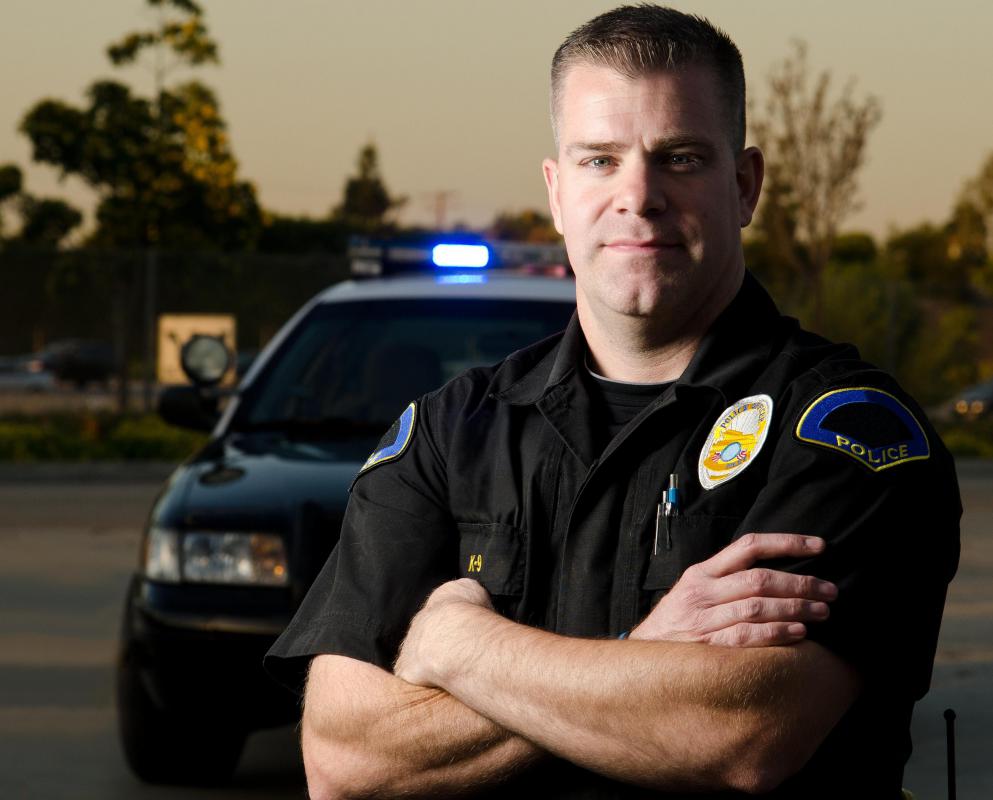At MyLawQuestions, we're committed to delivering accurate, trustworthy information. Our expert-authored content is rigorously fact-checked and sourced from credible authorities. Discover how we uphold the highest standards in providing you with reliable knowledge.
What Are the Different Types of Law Enforcement Transcription?
Law enforcement transcriptions come in three primary types: those created from phone logs; those made from police recollections and notes; and those capturing what was said at arrests, depositions, and interrogations. The vast majority of police and other law enforcement personnel are not stationed at desks. Their work is out in the field, but precise documentation of what they do and what is said is often essential to prosecutions and helps departments build files on suspects, witnesses, and victims. Law enforcement transcription usually happens in a bureau office by a trained police transcriptionist. Some of the work may be outsourced to an independent law enforcement transcriptionist, as well, but not as frequently.
Phone call transcriptions are among the most common. When people call an emergency hotline — 911 in the US and Canada, 112 in much of Europe, and 000 in Australia, to name a few — the conversations that ensue are generally recorded. These recordings go into digital storage, but they usually must be transcribed onto paper in order to be properly filed. The laws in most places require police departments to keep written transcriptions of all emergency hotline exchanges.

A law enforcement transcription is also an important part of most arrests and criminal charges. Police officers usually record arrest logs by radioing their home base. These radio communications are captured, then sent to a transcriptionist for processing into law enforcement paperwork.
The process is similar for witness statements and suspect interrogations. Police commonly bring people down to the station for questioning, and the contents of what was said and by whom usually needs to be recorded for accuracy. Having transcription services personnel in the room during questioning or statement taking can be distracting, however. The proceedings are usually either filmed or recorded, which provides the base material for later law enforcement transcription.

Law enforcement transcription is important for a number of reasons. First, it gives police officers a condensed way of viewing a case in full. This often helps them write accurate police reports, and can also help them recall events and happenings afresh.
Transcripts also have significance for prosecution. Written transcripts, not digital recordings, are what go into court records. Maintaining records in written format provides an easy way for lawyers and other trial participants to quickly scan for certain key facts that sifting through numerous recordings simply would not allow.

Most police matters are incredibly sensitive, both from a privacy and a public safety standpoint. It follows that much of the information that needs transcribing is confidential and can only be handled by certified or otherwise vetted professionals. A great many police departments hire a professional law enforcement transcriptionist to work on-site and handle all of the office’s law enforcement transcription needs. Some law enforcement transcription services are outsourced, but this is rare and usually only done for files that can either be redacted or are not sensitive.
AS FEATURED ON:
AS FEATURED ON:

















Discussion Comments
Your articles give comprehensive, concise, and hard to find information in their descriptions of many terms. Can the articles be printed, or cut and pasted into a word processor for future reference?
Post your comments